Famous singers in the 60s were at the center of a musical revolution that redefined sound, style, and cultural influence. Leading this transformation were two powerful genres: rock and pop.
These genres didn’t just entertain—they ignited movements, broke down barriers, and gave rise to a generation of unforgettable voices. From gritty rock revolutionaries to smooth soul icons and polished pop stars, the ’60s introduced artists who redefined what it meant to be a music legend.
This era gave us more than just hits; it gave us anthems of change, freedom, and self-expression. Whether through blistering guitar solos, heartfelt ballads, or soul-stirring vocals, these singers left a mark that still echoes through today’s music.
Read on to explore the most influential singers of the 1960s—artists whose voices shaped a decade and continue to inspire generations.
Key Takeaways
-
The 1960s marked a musical revolution, where genres like rock, soul, pop, and folk blended to create bold new sounds that reflected a rapidly changing culture.
-
Iconic artists emerged as voices of their generation, using music to challenge norms, spark social change, and express identity—from Bob Dylan and Aretha Franklin to Jimi Hendrix and Marvin Gaye.
-
Music played a key role in civil rights and social movements, with songs becoming anthems for justice, pride, and resistance, influencing both culture and consciousness.
-
The legacy of 60s music remains powerful today, shaping modern genres, inspiring artists, and reminding us that music can be both timeless and transformative.
The Sound of the 60s
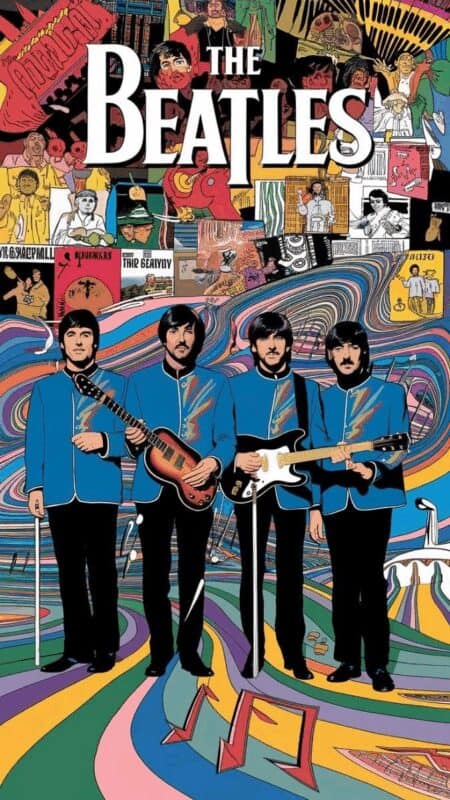
Credits: @nikitamarysioux / Pinterest
The decade’s music felt alive with possibility. As I listen back, I sense how powerful the blend of rock, soul, pop, and folk became—and how it gave voice to a changing world. The following captures how the sounds of the ’60s shaped culture and carried far more than just entertainment.
Rise of Popular Music, Soul, Rock, and Folk
By the early ’60s, youth culture was fueling a surge in pop and rock. I remember how electric instruments and energetic riffs came to dominate airwaves and teen culture. Bands of the British Invasion, such as The Rolling Stones, rewrote expectations and brought a new swagger to rock fans.
Soul emerged as a defining genre. Rooted in gospel, R&B, blues, and country, it spoke to Black pride at a time when America was asking hard questions. Labels like Motown gave the world a polished, rhythm-and-blues pop sound, often called “The Sound of Young America.”
Folk music also made its mark, bringing songs crafted for more than melody. Artists like Bob Dylan, Joan Baez, and Pete Seeger offered lyrics that carried weight—addressing civil rights, war, and social justice—drawing audiences who wanted more than just catchy tunes.
Music’s Role in the Civil Rights Movement and Social Change
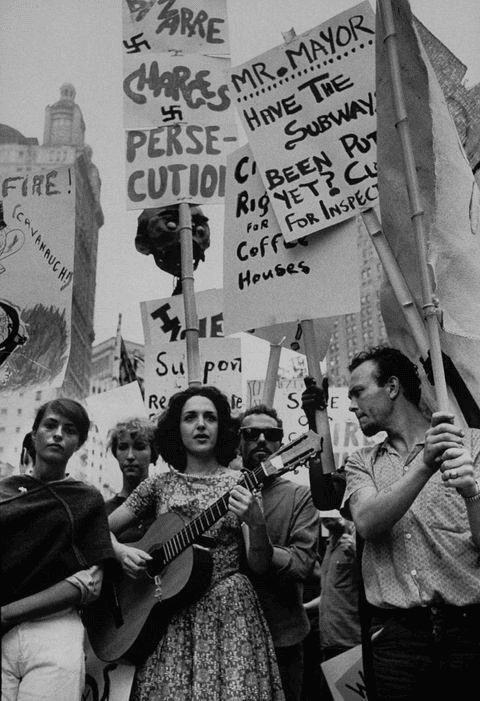
Source: esquire.com
Songs guided more than radios—they marched in step with history. Spirituals, gospel, and folk formed an emotional backbone for activists facing violence. These melodies motivated, calmed, and sustained spirits on long marches.
By mid-decade, soul voices like Curtis Mayfield’s band The Impressions sang anthems of Black pride. Their songs “Keep On Pushing” and “People Get Ready” became rallying cries—and Dr. King even incorporated them into marches.
Aretha Franklin was unmistakable. Her gospel-infused power, especially on “Respect,” transformed a pop hit into a feminist and civil rights anthem. Her voice became shorthand for dignity and justice—and she lived that message beyond the stage.
Rock Icons Who Shaped a Generation
After exploring Aretha Franklin’s unparalleled legacy, my focus shifts to the rock legends who revolutionized the soundscape of the 1960s. These trailblazers didn’t merely fill the airwaves—they detonated conventions and redrew the boundaries of what it meant to be a rock artist. Their music pulsed with rebellion, thrived on bold experimentation, and gave voice to a generation hungry for authenticity.
Rolling Stones, Bob Dylan, Jimi Hendrix
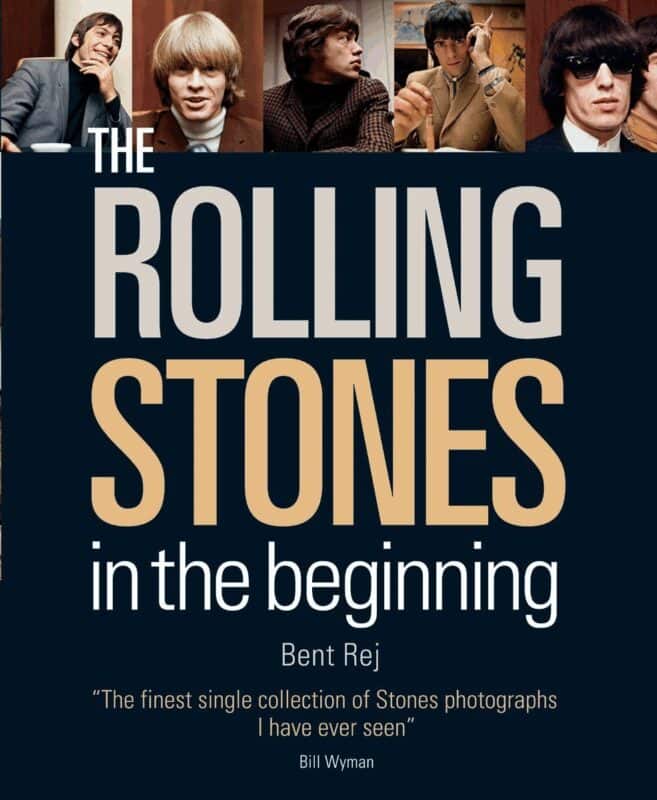
Source: flashbak.com
These names represent the core of how rock evolved in the ’60s. Each artist brought something distinctive that forever changed how audiences experienced music. Here are some of them:
- The Rolling Stones built a bridge between blues and rock that felt gritty and alive. They introduced the blues to young British and American audiences through raw energy and evolving songwriting. Their hit “(I Can’t Get No) Satisfaction” became a youth anthem—sharp, rebellious, and unstoppable.
- Bob Dylan rewrote the purpose of popular music. His protest songs became the voice of a generation, addressing civil rights, war, and injustice. To many artists and activists, his lyrics offered both reflection and direction.
- Jimi Hendrix revolutionized the guitar. His blend of blues, soul, jazz, and rock—paired with pioneering use of distortion and feedback—redefined how electric guitar could sound. Even decades later, guitarists still cite his style as groundbreaking.
Together, these three created the blueprint for modern rock. They proved that music could be both entertaining and socially relevant, leaving a legacy that continues to inspire today.
Elvis Presley – The King of Rock
No discussion of rock icons is complete without Elvis Presley. His presence and sound set the tone for what rock stardom meant in the ’60s and beyond.
Elvis wasn’t just about catchy songs—his powerful voice carried emotion and energy that captivated crowds worldwide. He blurred the lines between genres, mixing gospel, blues, and country into a form of rock that spoke to nearly everyone.
His influence went beyond music. From fashion to stage presence, Elvis redefined how an American singer could embody charisma. Even after his passing, his shadow still looms over the music industry.
Janis Joplin, The Beach Boys, Creedence Clearwater Revival
These acts added dimension to the rock scene by demonstrating that the genre could convey emotion, harmony, and storytelling in entirely different ways.
- Janis Joplin brought raw emotion to rock. Her voice cracked with vulnerability and grit, demanding you feel every lyric.
- The Beach Boys created rock that felt like a California dream. Their harmonies and studio magic expanded what a rock band could deliver.
- Creedence Clearwater Revival delivered rock with roots. Their songs captured American life—gritty, emotional, grounded—with the kind of resonance few artists have matched.
Together, they reminded listeners that rock wasn’t one-dimensional. It could be vulnerable, playful, or deeply reflective, and it was this versatility that cemented the genre’s lasting impact.
Soul and Pop Stars Who Moved the Masses
If rock roared with rebellion, soul and pop resonated with depth and vulnerability. The voices that emerged from this movement weren’t just performers—they were storytellers, truth-tellers, and cultural trailblazers.
Their songs stirred emotion, sparked introspection, and challenged the world to feel more deeply and think more critically. Through melody and message, they didn’t just top charts—they helped shift the conscience of a generation.
Marvin Gaye, Aretha Franklin, James Brown
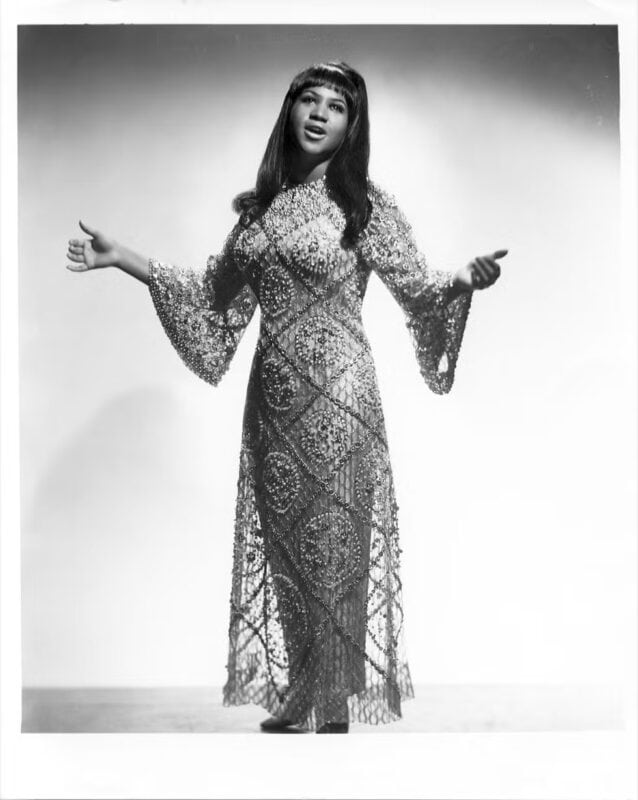
Source: elle.com
These three voices embodied the strength of soul music and the urgency of the times. Each one brought a different shade of power, from smooth storytelling to raw, unfiltered calls for change. Here are some of them:
- Marvin Gaye expanded soul beyond love ballads and used his music to explore war, racism, and justice. His artistry made listeners feel and think at the same time.
- Aretha Franklin blended gospel roots with bold self-expression, turning her songs into anthems that defined dignity and independence.
- James Brown electrified audiences with unmatched energy and rhythm. His music became both a celebration of identity and a statement of empowerment.
Together, they reminded the world that soul wasn’t just a genre—it was a platform for truth and pride. Their performances moved beyond stages, echoing through movements for equality and respect.
Stevie Wonder, Smokey Robinson, Otis Redding
These artists proved that innovation and vulnerability aren’t opposing forces—they’re soul music’s greatest strengths. Their work added color, nuance, and intimacy to the soundscape of the ’60s, each bringing a distinct voice that expanded the emotional vocabulary of the genre.
- Stevie Wonder was more than a prodigy—he was a visionary. With heartfelt lyrics and groundbreaking creative control, he reimagined what soul could be, blending social consciousness with sonic experimentation.
- Smokey Robinson brought elegance to every note. His songwriting shimmered with poetic grace, and his smooth, expressive vocals gave soul a refined touch that remained deeply human and relatable.
- Otis Redding sang like every word mattered—because it did. His raw, impassioned performances transcended the stage, making each song feel like a direct conversation with the soul.
Together, they pushed soul’s boundaries, balancing emotional grit with artistic sophistication. Decades later, their influence still echoes—in how songs are written, how stories are told, and how artists bare their truths.
Diana Ross, Dusty Springfield, Etta James
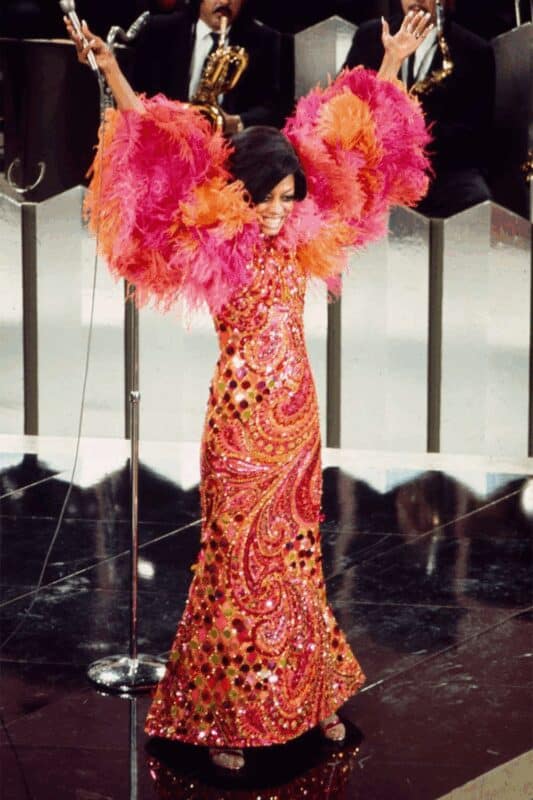
Credits: @people / Pinterest
These women proved that pop and soul could carry both elegance and edge. Each carved her own path, showing that female voices weren’t just made for the spotlight—they could dominate charts, cross genres, and demand lasting respect.
- Diana Ross, through her work with The Supremes, brought soul into the pop mainstream without diluting its essence. With style and precision, she made soul music not only accessible but iconic.
- Dusty Springfield introduced soul to new audiences with a voice that blended smoky intimacy and polished sophistication. She didn’t just borrow from the genre—she honored it with nuance and care.
- Etta James unleashed gospel-infused fire, pouring every ounce of emotion into each performance. Her voice was raw, unfiltered, and unforgettable—cutting straight to the heart.
Together, they revealed the full spectrum of female artistry: refined, sultry, defiant, and deeply influential. Their voices redefined what soul and pop could mean for women—not just as performers, but as pioneers.
In the 1960s, soul and pop weren’t just genres; they were vehicles for identity, resistance, and reinvention. These women didn’t just entertain—they empowered. And the echoes of their legacy still shape the sound of music today.
Cross-Genre Legends
In the 1960s, soul and pop weren’t confined by borders—they were expanded by the bold. Some artists didn’t just belong to one genre; they bridged many, fusing styles with vision, courage, and creativity.
These trailblazers blurred the lines between soul, pop, rock, and beyond—proving that great music knows no boundaries. Their legacy lives on in today’s most dynamic sounds, a testament to how far-reaching their influence truly is.
Ray Charles, Michael Jackson, Sam Cooke
Their music transcended genre and era—timeless, boundary-breaking, and deeply influential. Here’s how they redefined what was possible:
- Ray Charles fused gospel, country, jazz, and R&B into a sound entirely his own. His landmark album Modern Sounds in Country and Western Music reimagined country standards with soulful depth, breaking racial and musical barriers. As one of the first Black artists granted full creative control by a major label, he became a pioneer of crossover artistry.
- Michael Jackson, a child prodigy turned global icon, revolutionized pop music and performance. With visionary dance, cinematic storytelling, and genre-spanning hits, he didn’t just top charts—he changed the very definition of a pop artist. He was among the first Black entertainers to achieve worldwide superstardom, opening doors for generations to come.
- Sam Cooke, rightfully known as the King of Soul, brought gospel’s heart into the mainstream. With smooth vocals and poignant songwriting, he helped shape the sound of soul and inspired artists across musical divides. His music carried both emotional depth and cultural power.
Together, these legends didn’t just blend genres—they shattered boundaries. They proved that artistry isn’t about fitting into a category; it’s about creating your own lane and daring the world to follow.
Curtis Mayfield, Van Morrison, Gladys Knight
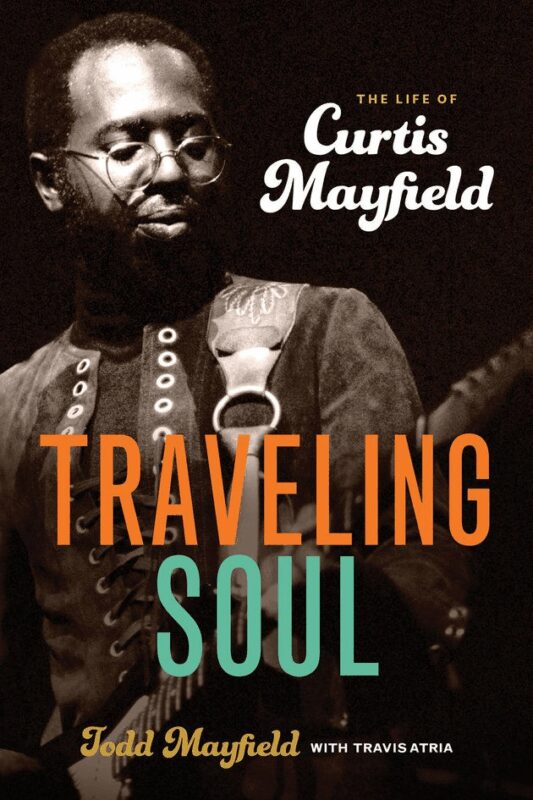
Source: huffpost.com
These artists carved their paths with music rooted in soul, storytelling, and emotion—yet each transcended genre, creating something uniquely their own:
- Curtis Mayfield turned music into a vehicle for social change. From his work with The Impressions to solo albums like Super Fly, he delivered messages of empowerment and resistance with quiet intensity. His songs didn’t just reflect the civil rights era—they helped shape its soundtrack, urging listeners toward truth and action.
- Van Morrison wove together soul, jazz, blues, and folk into a sound that felt both intimate and expansive. With a voice like a whispered prayer and melodies rich with emotion, he brought a spiritual depth to popular music—creating sonic landscapes that invited reflection and wonder.
- Gladys Knight, with her unmistakable velvet tone, moved effortlessly between soul, R&B, and pop. Her voice carried tenderness and resilience, turning personal stories into universal experiences. She became a comforting, commanding presence—connecting generations through feeling and truth.
Each of these artists brought innovation not by chasing trends, but by staying true to their voices. They expanded genres through authenticity, proving that powerful music lives at the intersection of honesty and imagination.
Voices & Songs That Last
Soul, pop, and rock legends gave us more than unforgettable melodies—they created cultural touchstones that still echo through time. Revisiting their music today, I’m reminded that some voices don’t fade—they endure. They cut through changing fashions, shifting trends, and generations of noise.
These artists not only delivered hit singles that still resonate—they shaped the very sound of popular culture. Their influence lives on in the rhythms we dance to, the lyrics we quote, and the emotions we return to.
In every note, they remind us that great music doesn’t age—it evolves, inspires, and stays with us.
Voices You Could Never Forget
These performers stood apart for voices so distinctive, so full of character, that they became instantly recognizable—and undeniably timeless. Each brought presence, depth, and feeling to every note, pulling listeners in, even decades later.
- Ray Charles channeled profound emotion through a seamless blend of gospel, jazz, and R&B. His voice didn’t just carry melody—it carried truth, with every phrase infused with soul and sincerity.
- Roy Orbison sang ballads with a haunting, operatic intensity. Tracks like “Only the Lonely” still send chills, his soaring falsetto capturing heartbreak in its purest form.
- Jackie Wilson was electricity personified. His powerhouse vocals and magnetic stage presence made each performance feel like a once-in-a-lifetime event—alive, urgent, unforgettable.
These artists remind us that vocal power isn’t just about range or volume—it’s about emotional gravity, presence, and the kind of honesty that never fades with time.
Songs That Defined A Generation
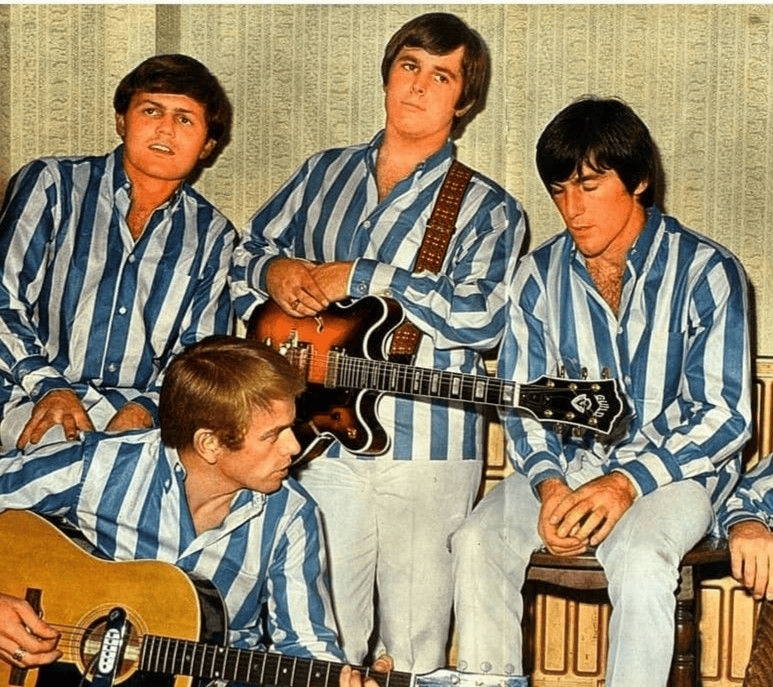
Credits: @petzealot / Pinterest
Certain songs stand as defining moments in music—melodies that capture the spirit of their time and continue to move listeners today. In my experiences sharing these songs, I’ve seen how they still bring out strong memories and feelings:
- “Respect” by Aretha Franklin became more than a song—it turned into an anthem for civil rights and feminist pride.
- Simon & Garfunkel’s “The Sound of Silence” transformed from quiet folk to chart-topping folk rock, bridging generations of listeners.
- The Beach Boys’ “Good Vibrations” reshaped pop music with its inventive production and evocative atmosphere.
These tracks prove that the most memorable songs do more than entertain—they become the soundtracks of lives.
Why Their Legacy Still Shapes Music Today
Sometimes I catch myself humming these tunes long after they’ve faded—and it’s not just nostalgia. These songs and voices have shaped more than music; they’ve become part of our shared cultural identity.
- The Beatles, Bob Dylan, Aretha Franklin, and Marvin Gaye consistently top the lists of the most influential artists of the 1960s, a testament to how far their impact reaches—across genres, generations, and global boundaries.
- Streaming platforms still spotlight ’60s hits, not as relics, but as enduring touchstones that continue to influence how we listen, feel, and create.
- In music studies, the fusion of gospel, R&B, folk, and rock from this era is often credited with developing a musical language still spoken today—one rooted in personal truth, social commentary, and innovation.
Their influence lives on in modern music—from vocal stylings and lyrical structure to production techniques and the courage to say something meaningful.
Because voice and song power don’t fade with time—they evolve into threads that connect us. These legends aren’t just remembered; they live on in the music that still moves us, challenges us, and brings us together.
Underrated Artists Worth Remembering
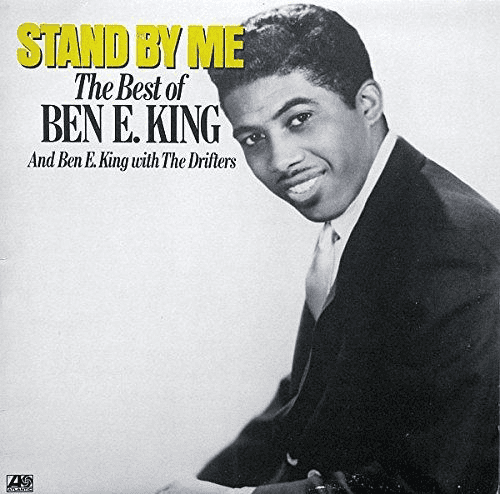
Credits: @amazon / Pinterest
While many names dominate the stories of the 60s, I’ve noticed that some voices with lasting influence are too often overlooked. These artists shaped soul, gospel, and early rock in ways that still echo today.
They may not always top the lists of icons, but their contributions deserve recognition.
Ben E. King, Rick Nelson, Brenda Lee, Chubby Checker
These artists each left their own stamp on music history. Their styles were unique, their songs unforgettable, and their impact far greater than many give them credit for.
- Ben E. King recorded “Stand by Me,” a song so enduring it was inducted into the Library of Congress National Recording Registry. His voice blended intimacy and strength, rooted in gospel yet universally resonant. As a solo artist, he proved that soul could speak to the heart of every listener.
- Rick Nelson, often remembered as a teen idol, quietly helped shape the foundation of country rock. With songs like “Garden Party,” he evolved beyond pop stardom, showing that thoughtful songwriting and artistic growth could outlast fleeting fame.
- Brenda Lee, a powerhouse in a petite frame, broke barriers as one of the youngest female solo artists to top the charts. With enduring hits like “I’m Sorry” and “Rockin’ Around the Christmas Tree,” she brought emotional depth and vocal strength that defied expectations.
- Chubby Checker didn’t just spark a dance craze—he shifted the culture. “The Twist” remains the only song to top the Billboard Hot 100 twice, cementing its place as a defining moment in American pop history. His impact wasn’t just musical—it was movement, energy, and joy.
Looking back, it’s clear these four were more than entertainers. They were innovators who shaped how music lived in our everyday lives—on the radio, at parties, and on dance floors everywhere. Their influence may not always make the headlines, but it’s etched into the soundtrack of generations.
Contributions to Soul, Gospel, and Early Rock
Their music crossed boundaries—of age, race, and genre. I’ve heard older listeners reflect on how these songs carried them through pivotal years, and I’ve seen younger audiences light up the moment those same tunes come on. These artists created more than hits—they created moments that continue to resonate.
- King brought gospel warmth and emotional honesty into the mainstream, giving soul music a universal heart.
- Nelson blended rockabilly swagger with country storytelling, quietly laying the foundation for the emergence of country rock.
- Lee defied industry norms, proving that a young woman in a male-dominated era could top charts in both pop and country—and do so with power and poise.
- Checker gave America more than a hit song—he gave them movement. With “The Twist,” he turned dance into a cultural force, uniting generations on living room floors and dance halls alike.
Their stories remind me that influence isn’t always loud. It doesn’t always come with headlines or flashing lights. Sometimes, it’s found in the quiet endurance of a song that keeps playing, a voice that still moves us, a rhythm that still gets us on our feet.
These artists deserve a place alongside the most celebrated figures of the ’60s—not as footnotes, but as essential chapters in the story of popular music. Their contributions helped shape the way we listen, move, and feel—and their legacies continue to inspire artists today.
Why 60s Music Still Matters
The music of the 60s continues to shape what we hear today. I’ve noticed how modern artists often borrow the soul of that decade—whether through lyrics that speak to justice, guitar riffs that echo Hendrix, or harmonies that mirror Motown.
The sound hasn’t disappeared; it has evolved and found new life in different genres.
The influence goes beyond music itself. Style, performance, and even how artists present themselves to the world trace back to 60s icons.
From the Rolling Stones’ rebellious edge to Aretha Franklin’s commanding presence, today’s performers are still walking paths first paved over half a century ago.
The industry also changed because of the 60s. Record producers gave more creative freedom, songs carried deeper meaning, and artists became cultural voices as much as entertainers.
That legacy endures in every generation of musicians striving not just to entertain, but to inspire and challenge.
The 60s proved that music could move people, unite them, and even shift history. That is why it still matters today—and why its echoes will continue to be heard for generations to come.
